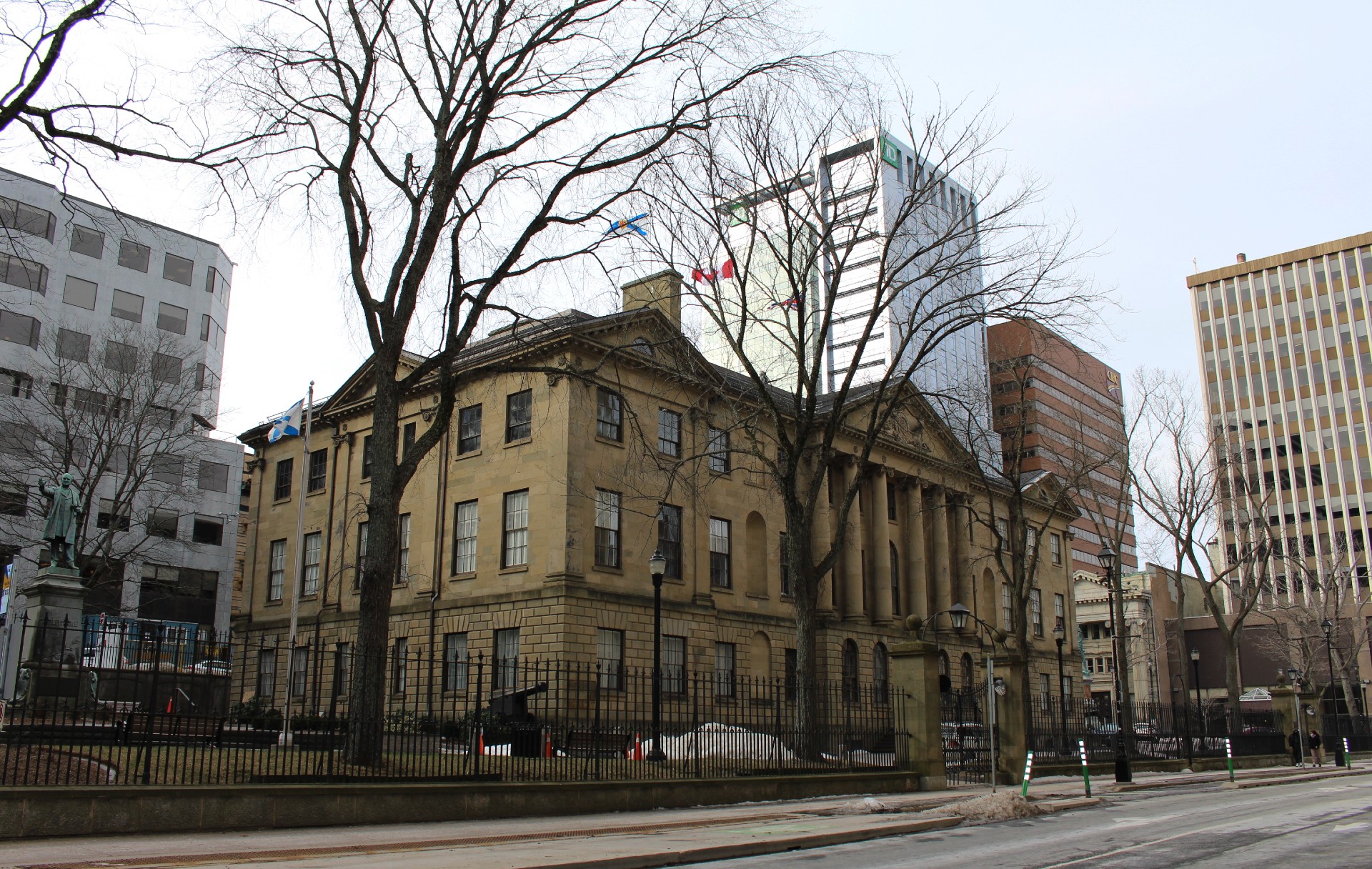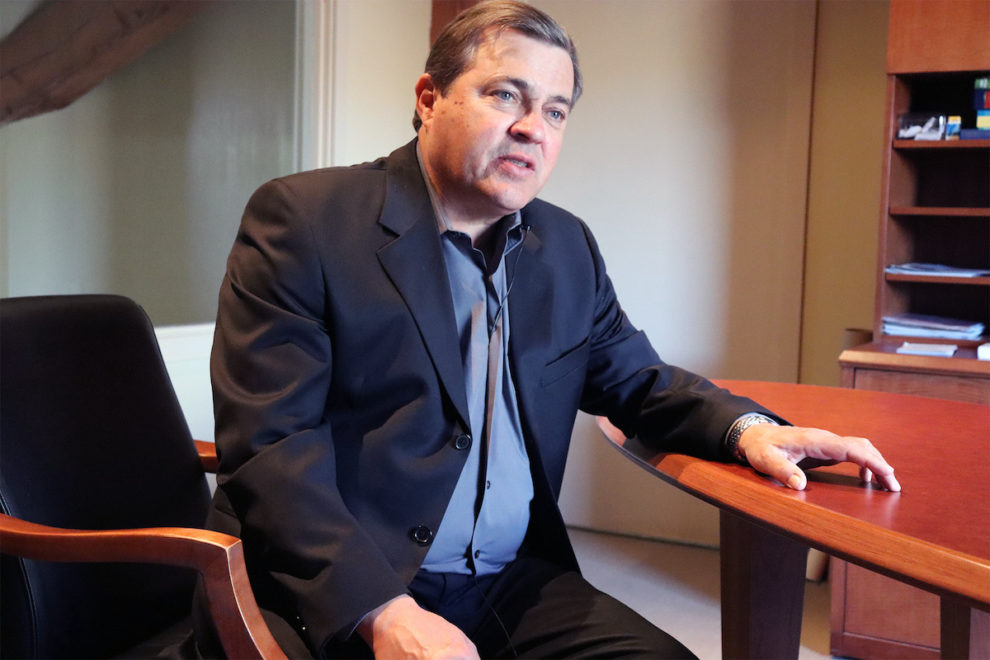One after another, the Atlantic provinces passed laws to shield Atlantic Lotto from VLT players

caption
Province House on Hollis St. on Jan.26, 2022.Class action lawsuits and punitive damages banned retroactively to early 1990s
After a near miss in Newfoundland and Labrador, every province in Atlantic Canada scrambled to pass legislation to ensure those harmed by VLTs can never band together to sue.
Atlantic Lottery had long fought against the certification of a Newfoundland class action suit, which argued that, “VLTs are inherently deceptive, inherently addictive and inherently dangerous when used as intended”
In 2018, the Newfoundland appeals court upheld the certification of the class action in a split decision, but after Atlantic Lottery and the other defendants sought leave to appeal to the Supreme Court, the high court reversed that in July 2020, killing the proposed action.
A successful suit could have had wide ranging implications for VLTs across Canada, and the three Maritime provinces moved to head off any future suits, even before the Supreme Court decision on certification.
New Brunswick acted first, in November and December of 2019, bringing forward legislation to ban any class action, and limit damages in any suit brought by an individual, all dated back to when VLTs began in 1991.
Nova Scotia followed in the 2020 spring legislative session, with a provisions in a bill with the unremarkable title, Financial Measures (2020) Act, which was essentially identical.
The government said it wanted to protect taxpayers from potentially costly lawsuits.
PEI followed in July of that year, just 10 days before the final Supreme Court ruling on the Newfoundland class action.
Ministers reminded of VLT profits
“Video lottery is and has been Atlantic Lottery’s most profitable line of business since it first launched its responsible, regulated program in the early 1990s. In fact, it accounts for almost 60 per cent of the corporation’s return to the provinces”
Briefing notes for Atlantic gaming ministers, 2019
Documents released under freedom of information laws show the class action suit in Newfoundland was on the agenda for the annual meeting the Atlantic Lottery Corporation holds with ministers responsible for gaming in the Atlantic provinces, in September 2019. The briefing package for the meeting indicated that, “Video lottery is and has been Atlantic Lottery’s most profitable line of business since it first launched its responsible, regulated program in the early 1990s. In fact, it accounts for almost 60 per cent of the corporation’s return to the provinces.”
The documents also show the Nova Scotia Gaming Corporation kept the then minister, Karen Casey, briefed on developments in the class action.
For example, on February 18, 2020 Karen Lockerby, then the manager of policy and regulatory affairs for the corporation, advised of a new class action suit against the British Columbia Lottery Corporation, making similar claims as the Newfoundland case. She also pointed out the ongoing work by the Wagner’s law firm in Nova Scotia to gather names for a possible class action here. Two weeks later, the Nova Scotia legislation was introduced at Province House. Much of the rest of the briefing information for Casey was blacked out under exemptions for advice to government or solicitor client privilege.
For this series, King’s students also requested records on coordination between the Atlantic provincial governments on the legislation to ban class actions, but most of the information in hundreds of pages was blacked out. Among the few records released, a March 11, 2020 email from a Nova Scotia official writing to a counterpart in Newfoundland indicating the Nova Scotia legislation had received royal assent.
“The VLTs, these are really…the big, huge problem because they’re so accessible and they’re poorly monitored,” lawyer Ray Wagner said. He was hoping a suit could eventually lead to changes in how the machines work to lure gamblers in.

caption
Ray Wagner“The act (preventing lawsuits in Nova Scotia) is really an attempt to inoculate the government against suit for all the VLT damage that has been caused to families, to people, the suicides, the loss of homes, the breakdown of marriages, the alcoholism, the dysfunction that comes from chronic addictive gambling,” he said when it was before the legislature in 2020.
“This money grab from individuals who are, unfortunately, drawn into the addiction of gambling is, in my view, reprehensible.”
The legislation allows individual suits, but Wagner said individual gamblers don’t have the resources necessary to pay for such an action, which he estimated could easily cost a quarter of a million dollars.
Even in individual suits, the legislation bars what are called punitive damages, which are designed to punish corporations, and instead only allows compensation for individual harms such as pain and suffering or loss of income.
In November of 2021, Newfoundland and Labrador joined its Maritime counterparts in passing legislation insulating it and the Atlantic Lottery Corporation from VLT lawsuits, meaning governments and Atlantic Lottery are now protected from such lawsuits in all four Atlantic provinces.

